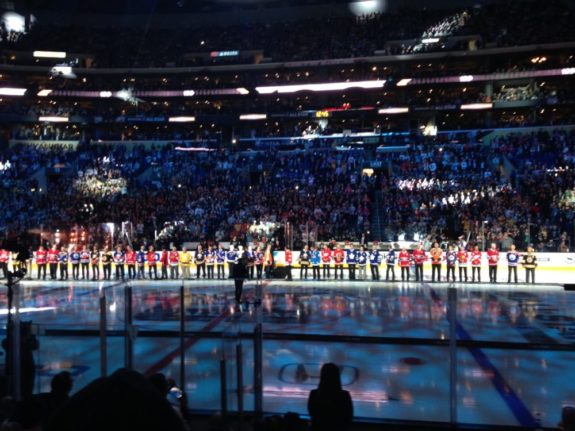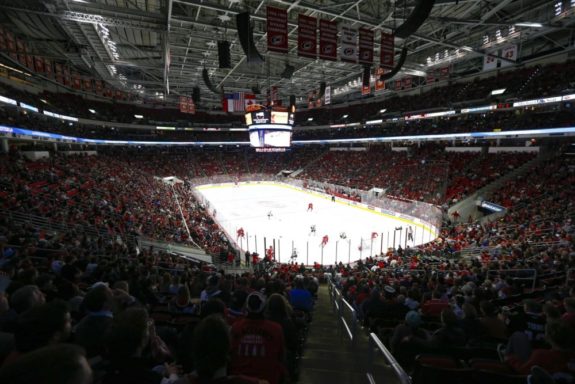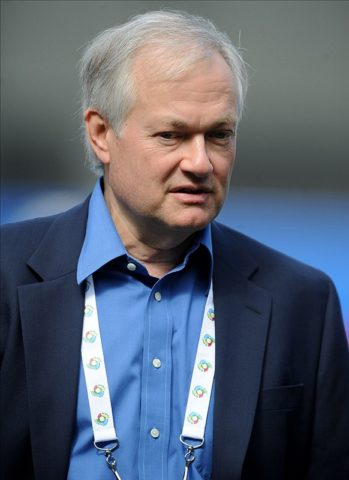Since the 1967-68 season, the NHL has played at least 74 regular-season games, apart from lockout years. But should the NHL think about shortening the schedule? Here is a radical proposal that has the interests of fans, players and the game of hockey at its heart.
What’s Wrong With the Current Schedule?
The NHL currently operates on an 82-game schedule, which many people love. But is 82 games too many?
For viewers and fans, it can be. Casual viewers of the NHL can find themselves overwhelmed with the amount of games and questioning the importance of them. If you are not a dedicated hockey fan, but instead someone who enjoys watching the odd game, it can be hard to decide that a game is important to watch when there are so many played.

Why should a casual fan get excited about the Carolina Hurricanes’ home game against the Buffalo Sabres when they both play again next week? This is exactly the point that the NHL and the owners do not understand when they are trying to sell the game to a mainstream audience.
The NHL Needs to Reconsider Its Approach
An owner will sit here and say, “We need more games to fill arenas and sell merchandise,” but the more games you play, the more diluted the product becomes. The NFL operates a 16-game schedule that keeps fan interest at a maximum level because they have fewer games. Suddenly, the Minnesota Vikings against the Denver Broncos is important—fans know that the game holds gravitas. Compare this to the NHL, where if a team loses tonight they can win again tomorrow and all will be fine. Instead, the Vikings lose to the Broncos and for the next week the media in each respective city analyses the game and hypes up the next one.
One of the best things about being a fan is analysing a game and looking forward to the next one. Currently, the NHL schedule is so demanding that we as fans can struggle to make sense of what exactly is happening throughout the league as a whole. I find myself during my busier periods just watching the team I follow because I do not have time to engage with other matches.
The NFL model may not be viable for the NHL, but the NHL can certainly learn some lessons from it. The answer to increasing revenues does not necessarily lie in the hands of more games being played, but at the feet of increasing the importance of every game. With the increased importance of games, we can see attendance going up, ticket prices rising and those crucial TV ratings increasing.
What Would the New Schedule Look Like?
The NHL schedule currently last around 180-185 days and features 82 games; each team plays once every 2.1 days, often featuring back to backs and three games in four days. A truly gruelling grind.
The improved schedule that I would propose would start a week earlier and finish by the first Monday in April. This would be a 180-190 day schedule featuring 60 games—home and away against every NHL team—meaning a game every 3.1 days.
Every team would play at least one midweek game and one weekend game every week. There would be eight game weeks where teams would play three games. These weeks would never feature back-to-back games and would always be intra-conference, meaning that teams will not have long road trips on their busier, three game weeks. Teams would also be facing other teams on their three game weeks to avoid a more rested team getting a competitive advantage.
This new schedule would also compensate for an all-star break and a Christmas break so the players and league can keep their scheduled breaks.

The playoffs, however, would be left untouched because there is no reason to change a formula that is currently working and liked by everyone involved in the game of hockey. However, the one change would be giving each team a one-week break prior to the playoffs so they can have a rest before the rigors of the playoffs begin. As things stand now, teams are lucky to have four days off before the playoff madness begins.
4 Improvements With Shorter Schedule
Coaching
Every coach will sit there and tell the media that they do not get enough time with their players on the practice rink. Well, a shortened schedule will give them far more time to practice those power plays, the set piece plays and everything else.
Players will benefit from learning. How much can a coach, well, coach, during a regular season where they are playing every two days? The benefits from a training perspective are quite obvious, and the players would naturally get more rest days too because they do not play as much.
Player Welfare
Probably the biggest reason to shorten an NHL schedule is related to player welfare. Sure some players like Patrick Marleau and Phil Kessel are hailed because they do not miss any games, but in general, it is a surprise to see a team play at full strength. How can we present the best on-ice product? By making sure the best players are on the ice.

A shortened schedule with larger gaps between games will give the players the chance to avoid becoming fatigued, rest their minor injuries and mentally stay on top of their games. Even the best teams suffer from a mental fatigue; it is only natural when you spend a week on the road and play four games. The shorter schedule curtails that problem.
Game Hype
I touched on this earlier, but I cannot emphasis enough how important game hype is to any event, never mind a sporting one. The importance of games increases so much with fewer being played. With the 60-game schedule I proposed where teams play everyone once home and away, every team is exciting to see for a fan.
With a 60-game schedule, we will see tighter playoff races. If a top team has a bad start then they do not have the cushion of knowing they have a boatload of games to make it up; if a bad team has a good start then they could have a shot at winning a playoff place. The 60-game schedule would give the NHL the opportunity to stress importance on far more games than it currently can.

The teams would also benefit from keeping their star players on the ice. The Tampa Bay Lightning of last season are a perfect example of who this new schedule would benefit. Would they have had as many injuries last season if the schedule was not as compact? I would say they would have kept their star players on the ice and gotten into the playoffs.
Viewer Fatigue
We all love hockey. But can we suffer from viewing fatigue? I would argue yes. There is some debate in the world of basketball at the moment about whether they should lower their schedule demands for fans and players—like hockey, the NBA plays 82 games. You may watch every game the team you support plays, but how often do you watch other teams play? I know myself that it can be hard to stay tuned into what the rest of the league is doing all the time when you’re busy working.
The worst thing about viewer fatigue though is that the NHL product becomes worth less because of it. Fans do not get the opportunity to watch the best players because they are busy watching their own team’s hectic schedule. How often would a fan of another team catch Connor McDavid playing a full game? You might see the highlights, sure, but the whole game? It’s unlikely because of the multitude of games played.
How can the NHL display how wonderful the product is when fans, casual and diehard, are overwhelmed by the sheer amount of games presented to them? The NHL should want their fans to see more of the whole product, and a shortened schedule would present the perfect opportunity for people to see more of the overall product rather than just their own team’s games.
The Problem: Revenue
Okay, so even if you nodded your head in agreement with everything I said, you will still sit there and go—the owners will not agree to this because it affects revenue streams. Yes, they will each lose 11 regular-season home games. Maybe millions in revenue, at first.
A 2014 study showed that over $200 million was spent by clubs on injured players. Sure, a shortened schedule would not wipe that total amount clear, but it would certainly help. Can a team get away with employing one or two fewer players with a shorter schedule?
Empty Arenas
I would also project that a shortened schedule would mean fans of smaller market clubs who do not necessarily fill their arena every night might find that they start to. Will a casual fan of the Arizona Coyotes go to more games if they are deemed more important? Will they find that one game a week to attend is far more manageable than two? I would argue yes.

If the NHL marketed their games in a better fashion, then I imagine TV revenues would drastically increase too. If every team plays fewer games, die-hard hockey fans will start watching other games and improve viewership on them. The NHL could market just one live game on Tuesday and one game on Thursday nights, and play all the other games on Wednesdays. Then they could have Saturday and Sunday marathon hockey days in which games are played all day long.
Ticket prices in large market areas would increase with fewer games. Unfortunately, the fans would be the biggest victim of this, but the owners could make up a lot of that lost revenue by increasing ticket prices because there are fewer games. The simple supply-and-demand economics would support this. The less a team plays, the more valuable a ticket to see them becomes. That is why you can go to baseball games for less than $10, because they play every day.
The Chances of This Happening?

Will the NHL and NHLPA ever consider shortening the season? Probably not. But sometimes you have to wonder if, “Well we have always played 82 games, so why shouldn’t we” is a valid long-term answer to the game of hockey.
The benefits to player safety are so huge that I am surprised that this is not something brought up more often by the NHLPA. Interestingly, P.K. Subban recently suggested shortening the schedule of the NHL because it is so rigorous. The more that players and media alike talk about the subject, the more it is likely to gain steam.